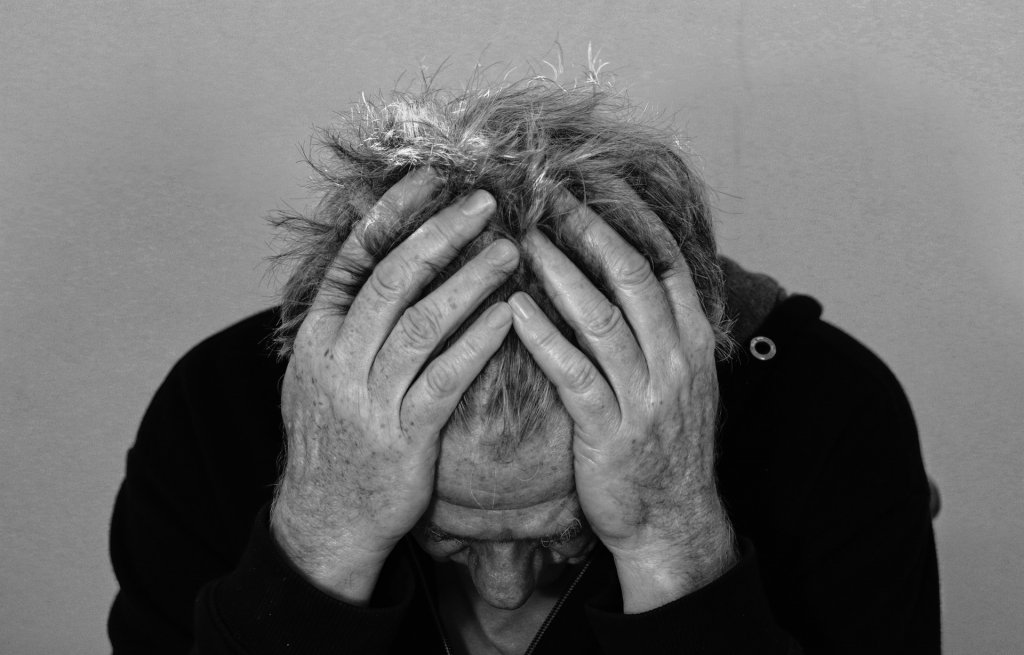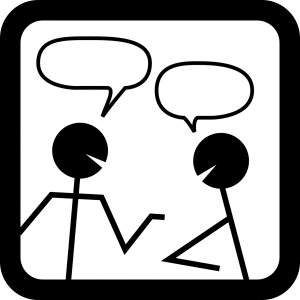What You SHOULD Say to People Who Have Hearing Loss
Gael Hannan (The Way I Hear It) is a hard of hearing advocate that understands both sides of the fence between the consumer and the hearing health care professional. Gael’s columns are humorous, sometimes cutting, but always constructive and to the point.
Advocates are always posting articles about what NOT to say to deaf people. I find these interesting, having been on the receiving end of many of the comments, although I’m no longer insulted by most of them. But once in a while I have to grab my chin to keep my jaw from dropping to the floor.
The inane remarks usually just reveal a profound ignorance about how hard of hearing or deaf people communicate—because it’s not their issue. They are asking questions because they’re curious. My dad always joked, when I asked him a question he couldn’t answer, “But you keep asking those questions, honey. That’s how you learn stuff.”
So, hearing people, here’s something to learn: when a person tells you they are deaf or hard of hearing, you really don’t want to say:
“Oh, you’d never know to look at you!” (We don’t see this as a compliment.)
“And yet you speak so well!” (Ditto)
“How do you drive a car?” (You’re kidding me, right?)
”Can you read? (I’ve never been asked this, but friends of mine have. If someone did ask, I’d reply, “Only if the words are simple, with big letters. And the pictures help, duh.”)
“Do you use Braille?” (Oh, please, kill me now!)

More forgivable, although irritating to people with hearing loss who use spoken language and are, like, actually speaking with this person, “Do you do, you know, the signing?” Hearing people find sign language beautiful and fascinating—which it is—and they extend the idealistic admiration to the signers themselves, simply for being Deaf. (Hearing people aren’t quite so starry-eyed about us oral folk with hearing loss.) This placing-on-a-pedestal is a source of annoyance to people with disabilities; we like to earn our hero status through something we have actually accomplished rather than something we don’t have any control over.
And I don’t get my knickers in a knot when I ask someone to repeat themselves, citing my hearing loss, and they respond “Oh I’m sorry.” This is often just a verbal space-filler, on par with “um” and “uh” while they think of what to say next, which is hopefully what I’ve asked them to repeat. In my experience, the person is simply apologizing for not having spoken clearly—not for the fact of our deafness, “Oh you poor thing, being deaf and all.” I usually let “sorry” go with a “don’t be” or “no problem”.
And I also don’t feel that people are insensitively minimizing my communication challenges by saying, “You know, I struggle in noisy restaurants, too.” Background noise is a strong indicator of hearing loss and I always tell them to get it checked.
The fact that these stupid or even occasionally derogatory are still being asked is surprising, given the greater public awareness of hearing loss issues today. However, hearing loss activists like me just love the opportunity to nail the asker’s feet to the floor and tell them everything we know about deafness and communication, ad nauseum.
Our possible crabbiness should not, however, keep hearing people from pussyfooting around us for fear of giving offence. We notice when you notice our hearing aids or cochlear implants—even though you pretend not to. Face it head on—say something to us. Just make it positive, or as minimally stupid as possible. Yes, some hard of hearing people do try to hide their hearing loss and may not want you to bring it up. And others are, shall we say, a tad over-sensitive, jumping down your throat at the slightest communication infraction. But be brave, give it a go!
Nice things you COULD and SHOULD say to people with hearing loss:
- Anything they ask you to repeat. No questions asked, just repeat it.
- Your hearing aids are beautiful. Where can I get some like that?
- Is there anything I can do, right now, to improve communication?
- Let me know if I’m not speaking clearly.
- Because of you, I’ve become a better communicator.
- You are awesome. Not because of but, in spite of, your hearing loss, you can walk and talk and swallow food like real hearing people, but because you don’t deal in self-pity or victim-vibes.
- I like how you look people in the eye.
- Thank you for not making me feel self-absorbed, forgetful, or a petty criminal if I say the wrong thing. You are patient when people are not perfect communicators.
- Thank you for tactfully letting me know you prefer (pick one: hard of hearing/hearing impaired/deaf/person with hearing loss/hearing challenged/differently hearing) rather than what I just called you.
- I like how you don’t apologize for your hearing loss—and how you acknowledge other people when they communicate well.
- You stand up for yourself. When someone says “oh never mind”, you firmly cut them off with various but non-venomous versions of, “No, really. Please repeat yourself. Let me be the judge of whether what you said has any value. If you said it once it must be worth repeating.”

This is the stuff we like to hear once in a while, before we get back to talking about whatever it was we were talking about.
This article was adapted with permission from Gael Hannan’s article for HearingHealthMatters.org.

